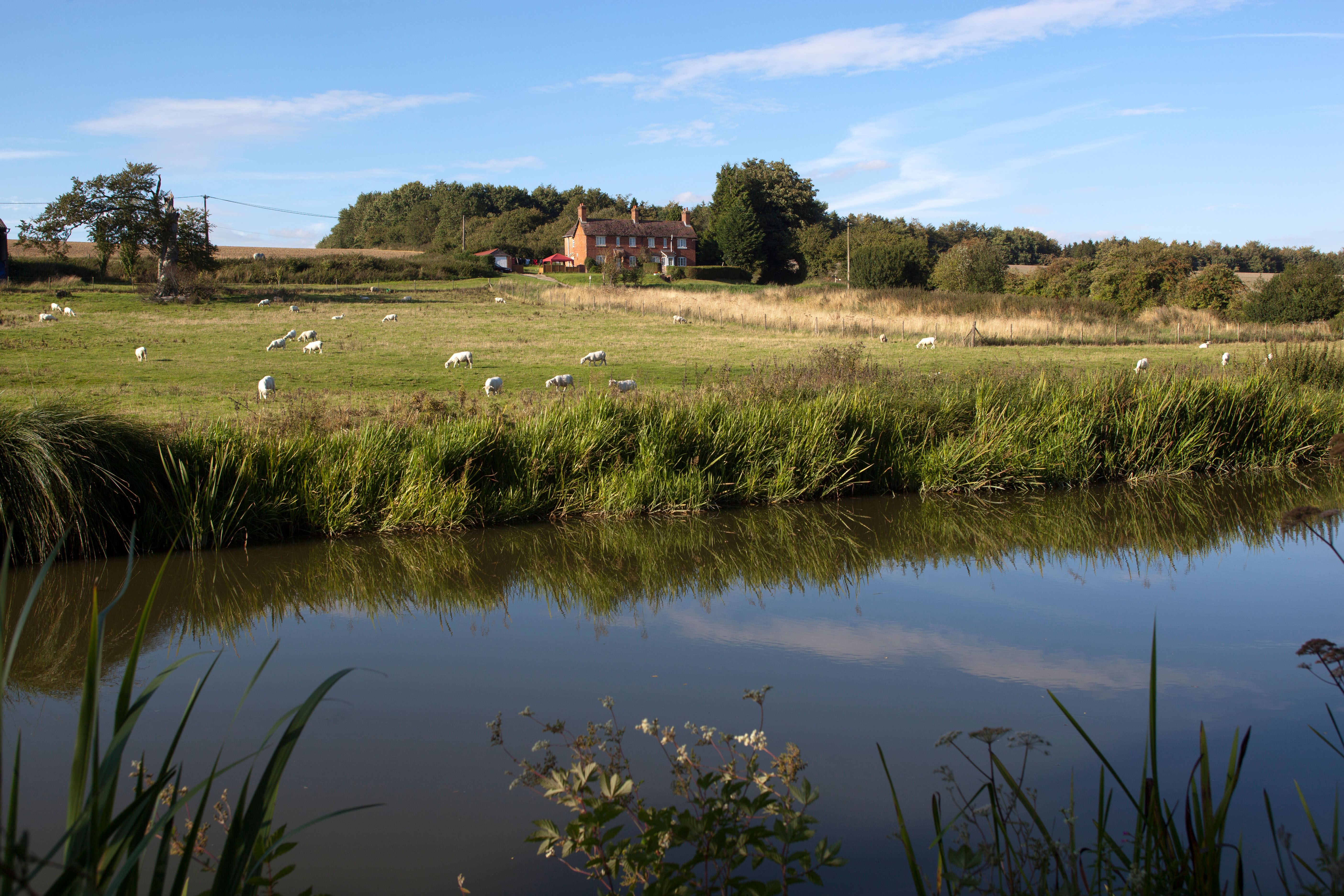CCTV, laser-beams and even digging moats: How farmers are protecting themselves from rising rural crime
Under attack by gangs of thieves, farmers are looking at every possible way to defend themselves and their properties, including creating ditches around their land.


With England facing a sharp increase in rural crime, farmers are having to find creative ways to protect themselves, their stock and their machinery from thieves. So, alongside CCTV, fences, secure store rooms and watch dogs, some people have borrowed a leaf from British history and have begun to dig moats around their properties.
A report by insurers NFU Mutual shows that, in 2018, crime in the countryside went up by 12%, for an overall cost to the country of £49.9 million. Worse, says the research, thieves are now organised in gangs that ‘steal expensive tractors and flocks of sheep to order’.
Among the most targeted items are costly tools, quads and machinery. The situation is so bad that people are having to change their way of life in a bid to keep their property safe — Tim Price, rural affairs specialist at the NFU Mutual, knows one farmer whose family ‘cannot leave the farm together any more to attend their local show because thieves will seize the opportunity to raid the farm’.
'Farmers have installed electric gates, CCTV, trenches and even motion-sensitive lasers. We’ve basically had to turn our farms into fortresses'
The insurers recommends joining local Farmwatch schemes, keeping valuables out of sight, putting on security signs, using sturdy padlocks, security gates and even bespoke locks and secure store rooms to keep quads and other tools safe. They also suggest investing in sophisticated surveillance technology, from CCTVs with multiple cameras to sensors linked to your mobile phone.
But farmers in Sussex, where, along with the rest of the South-East of England, the cost of crime rose by more than 13% in 2018 to reach £8.6 million, have come up with a rather more old-fashioned idea to protect themselves — digging ditches around their property.
‘You form a kind of moat around your land to stop vehicles getting in and making off with valuables,’ Caroline Harriet of the NFU in West Sussex explained to The Argus.
‘Farmers have installed electric gates, CCTV, trenches and even motion-sensitive lasers,’ she added. ‘We’ve basically had to turn our farms into fortresses. Many of us are so besieged we feel like we can’t leave our land...
Exquisite houses, the beauty of Nature, and how to get the most from your life, straight to your inbox.
‘Farms are isolated, and there’s rarely a visible police presence. Your land is accessible over a large area and you can’t be everywhere. We’re easy targets for criminals.’

The Country Land and Business Association (CLA) believe that the problem needs a more concerted effort. The organisation has called for rural police forces to have a dedicated rural crime team and for new recruits to receive mandatory rural crime training.
'Farming is a stressful business where many are working on tight margins,' said the CLA's President, Tim Breitmeyer. 'Having to deal with replacing lost machinery, repairing a vandalised barn, or clearing up and bearing the cost of someone else’s fly-tipped mess, just adds unnecessary stress, eats away at meagre profits and takes up valuable time.
'All of that is before we deal with the emotional fall-out of becoming a victim of crime, which many will unfortunately know can have long-lasting repercussions on wellbeing and feeling safe in your own home.
Much more needs to be done to ensure rural crime is taken with the seriousness that it should be. Next year’s police commissioner elections may well see rural crime rise up the policing agenda, but there is no reason why – as a bare minimum – all rural police forces should not have a dedicated rural crime strategy in place before then.'

Country Life Today: How crime in the countryside is on the up once more

Credit: Alamy
Country Life Today: How everyone in Britain — yes, including farmers — wins when we eat less meat and more vegetables
Carla must be the only Italian that finds the English weather more congenial than her native country’s sunshine. An antique herself, she became Country Life’s Arts & Antiques editor in 2023 having previously covered, as a freelance journalist, heritage, conservation, history and property stories, for which she won a couple of awards. Her musical taste has never evolved past Puccini and she spends most of her time immersed in any century before the 20th.
